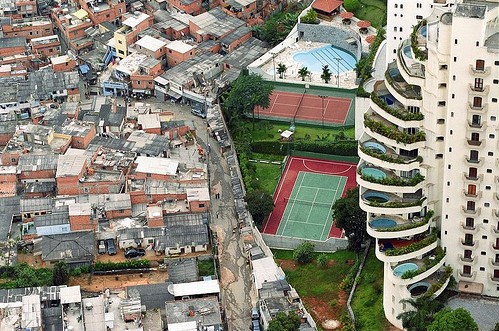 In the last class were discussed
some concepts of LEED and we saw the website Design Advisor. This website works
as a handbook for the design of affordable housing, where we can see the
considerations for the design, the steps that must be followed to you project
and examples of projects that have already been built.
In the last class were discussed
some concepts of LEED and we saw the website Design Advisor. This website works
as a handbook for the design of affordable housing, where we can see the
considerations for the design, the steps that must be followed to you project
and examples of projects that have already been built.
I was looking at the gallery with
the built projects, and caught my attention. I found it interesting that in
them there are always a concern with community spaces and leisure areas for children
and reading rooms and studies and not only separate houses for each family to
isolate.
The designs are very well thought
taking into consideration that in each place, in each city people are different
and require different settings which ends up further enrich the designs. I
found very interesting the quality of housing and the values of the them. In
Brazil, for example, there is a federal program that annually builds more than
1 million homes for low-income families who often do not pay anything for it
directly, but the downside is that these houses has a very low quality and
those families who have nothing are condemned to live in these conditions. This
is something but has a lot to improve, and I think the regulations of concepts shown
in the Design Advisor could help them a lot.
This idea of the Design Advisor is
really very useful and I would like to see in more places in the world. Let´s
disseminate these ideas.
For more information about the Design Advisor: designadvisor.org

